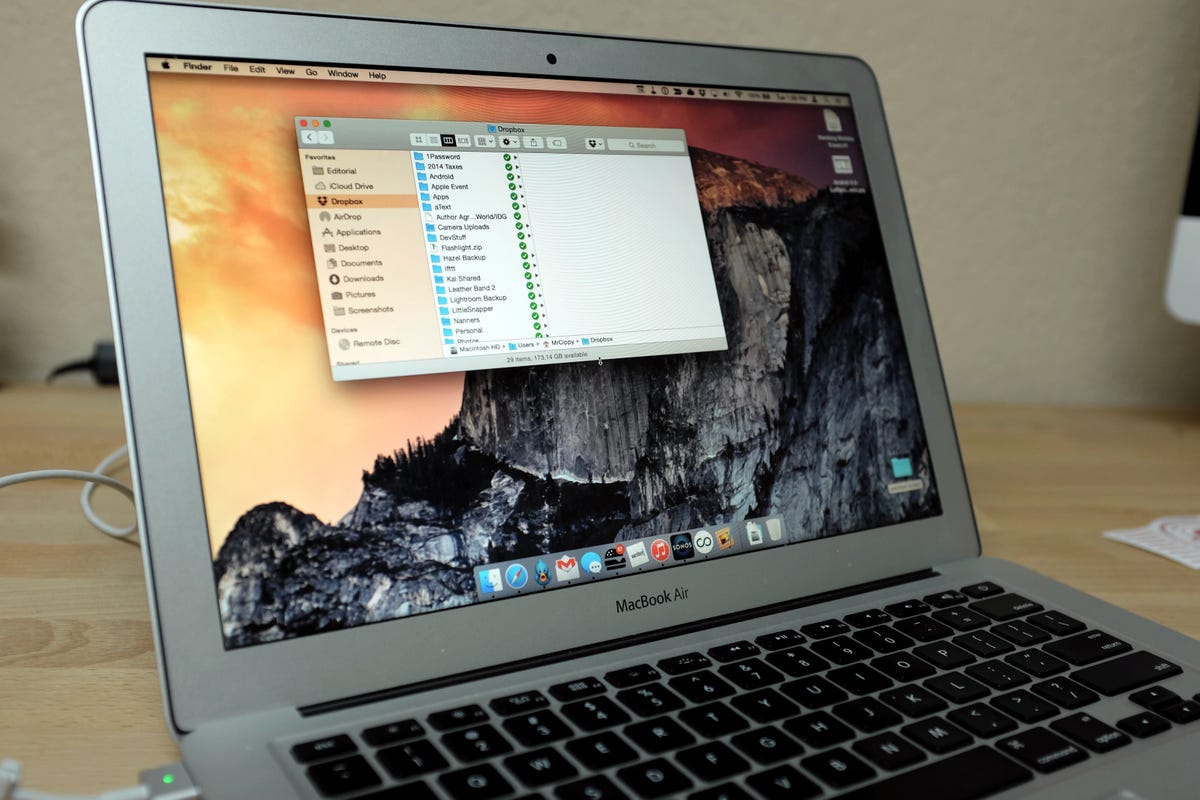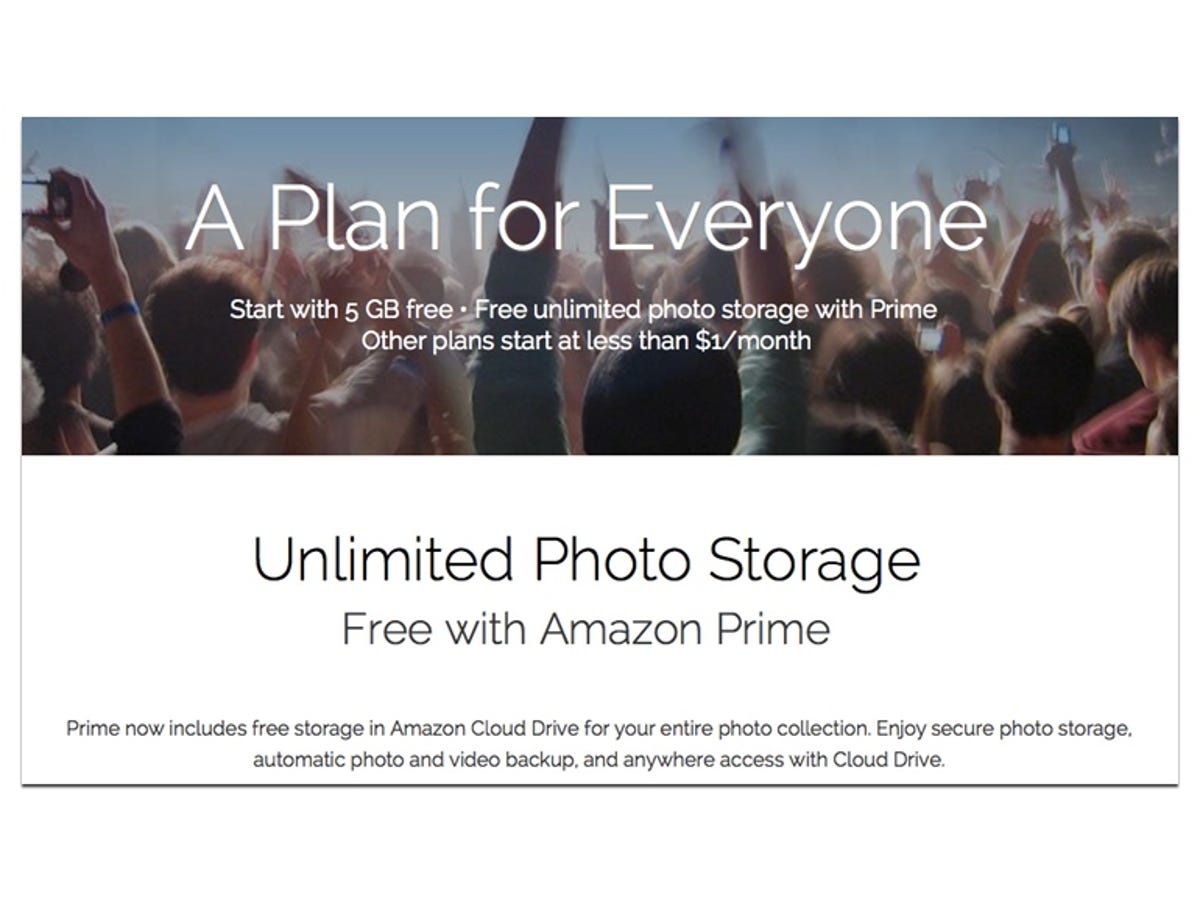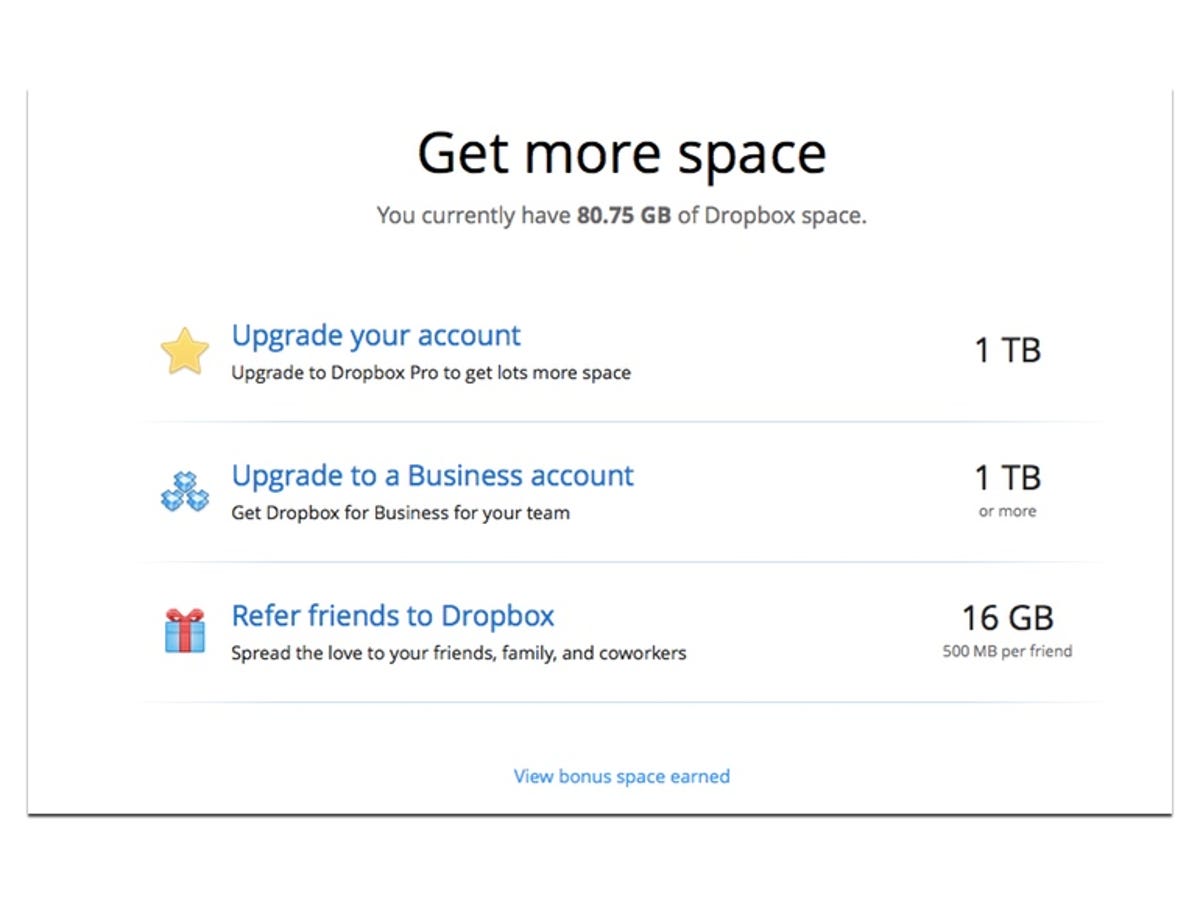
Jason Cipriani/CNET
Editors’ Note: This article was originally published April 24, 2012, and has been updated to reflect current offerings.
If 2014 isn’t known as the year of wearables, it could be known as the year of cloud storage. Between updates to Google Drive and Dropbox, and revamped offerings from Apple’s iCloud Drive, Amazon’s Cloud Drive and Microsoft’s OneDrive, access to cloud storage is now easier and cheaper than ever before.
Even with the cost of storage continuing to decline, free storage is something that’s hard to pass up. Let’s take a look at how to get free space from your favorite storage providers. If you want to upgrade to more than just the allotted free space, check out Sarah Mitroff’s in-depth comparison of the big four cloud storage services.
iCloud Drive
First, let’s get the service that doesn’t offer any additional storage sans payment outside of the initial allotment: iCloud Drive. Apple gives iCloud users 5GB of free data, but anything beyond that you’re going to have to pay for. You can view the monthly storage plans, which range for $0.99 to $19.99 per month here.
OneDrive
Microsoft’s OneDrive service is free for the first 15GB of storage space, with opportunities to earn an extra 8GB by backing up your photos using the mobile app (worth 3GB), and inviting friends to sign up for the service. For each friend that signs up, you’ll get 500MB of storage (with a max of 10 friends for a total of 5GB).
While the total allotment of free OneDrive storage caps out at 23GB, paid Office 365 subscribers can take advantage of unlimited storage once the new allotment is completely rolled out.


Screenshot by Jason Cipriani/CNET
Amazon Cloud Drive
Amazon’s Cloud Drive service remains free for basic users, with a base of 5GB free storage space. However, Amazon Prime members are able take advantage of one important upgrade – unlimited, free photo storage. Technically it’s not free since it requires a Prime membership, but as yet another perk added to the service, one can get away with considering it a freebie.
Regular files, including music and videos, are still restricted to the 5GB of space.
Box
Box offers 10GB of free storage with for its basic personal accounts. You can, however, earn free storage by installing its app on specific devices. As of May 2014, the list of eligible devices can be found here.
Some more notable devices found on the list include Sony Xperia, LG phones and tablets, HP Windows PCs, Dell and Samsung ATIV tabs.
The amount of free storage unlocked varies based on the device and you use to sign into your Box account.
Google Drive
Google Drive users are treated to 15GB of free storage space. The space is used in combination with the attached Gmail account, which can be problematic for those with a large email database.
In lieu of paying for additional storage, you can unlock an extra 100GB of free space by signing into your Google account on a Chrome OS device and visiting this link. The added storage, unfortunately, has an expiration date of two years.
Google also has offers granting users of select Motorola, HTC and Kensington devices more storage. You’ll need to visit this page and select your device type to learn more about added storage and the redemption process.
Dropbox


Screenshot by Jason Cipriani/CNET
Lastly is Dropbox, arguably the leader in promotions for free storage. By now you likely already know about the free 2GB of storage included with each account. And you likely already know you’ll need to complete the getting started guide to unlock more space. Referrals are also an easy way to earn more space, along with connecting your Twitter and Facebook accounts.
Another method is to use Dropbox’s Carousel app to backup your photos. By installing the app and setting up the app, Dropbox will grant you 3GB of extra space. You don’t actually have to use the app, unless, of course, you want to.
Mailbox is another Dropbox app that offers free storage in exchange for using it. Link your Dropbox account to the Mailbox app and bam, 1GB of data is automatically added.
It looks like HTC Android users using a device running Sense 5.0 can sign into the Dropbox app and earn 23GB of free storage through the end of 2014.
Samsung device owners have the ability to earn 48GB of extra storage, depending on your device type and when you logged into the Dropbox app. Be sure to read the fine print, which outlines how long the data is good for (one or two years).
It’s likely more promotions than what I’ve listed here are available for these services as well as others. If you have any tips to earning free storage space on any service, be sure to share it below in the comments.




